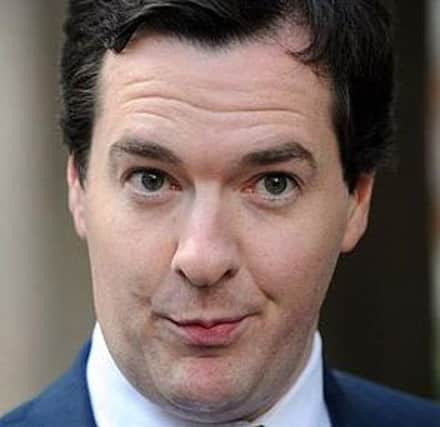Rotherham bosses warn Chancellor


Andrew Denniff, policy and communications manager at Barnsley & Rotherham Chamber of Commerce, said: “We hope the Chancellor treads carefully to avoid introducing damaging new taxes that affect business growth.
“Short-term revenue gains should be outweighed by longer-term economic consequences, from reduced business investment to lower rates of job creation.
Advertisement
Hide AdAdvertisement
Hide Ad“Any tax rises must be focused on consumption taxes rather than payroll, income or profits.
“The bulk of the measures to reduce the deficit will no doubt come from public spending cuts. We hope they will not come from punishing tax hikes on small and medium-sized firms that will drive our economic recovery.
“Crucially, the Chancellor has a unique opportunity in this Budget to talk positively about doing business in the UK - and he can show that this administration is genuinely pro-enterprise.”
Nearly half of businesses are concerned about the prospect of Capital Gains Tax rising tomorrow’s Budget, according to a survey by the British Chambers of Commerce (BCC).
Advertisement
Hide AdAdvertisement
Hide AdThey asked over 1,000 members for their opinions on a range of potential tax
changes.
Asked about Corporation Tax, 90 per cent of companies stated that the government should proceed with lowering the headline rates at the expense of tax allowances.
However, the Chambers argue that the Treasury should only push ahead with its simplification programme after a proper economic evaluation of existing allowances and reliefs.
On National Insurance, companies were clear that the planned April 2011 rise should be rolled back in full—with 30 per cent of firms wanting it achieved 'regardless of the cost'.
Advertisement
Hide AdAdvertisement
Hide AdThe BCC has suggested that a 1 per cent rise in VAT would largely offset any potential lost revenue from scrapping the one per cent increase to employer NICs.
Businesses were also asked what would be the least damaging way of implementing a potential 2.5 per cent hike in VAT.
Exactly half said it should happen in a single increase, from 17.5 per cent to 20 per cent.
Just over a third said the rise should be phased over multiple years, and 15 per cent of firms stated that it should be staged over two years.